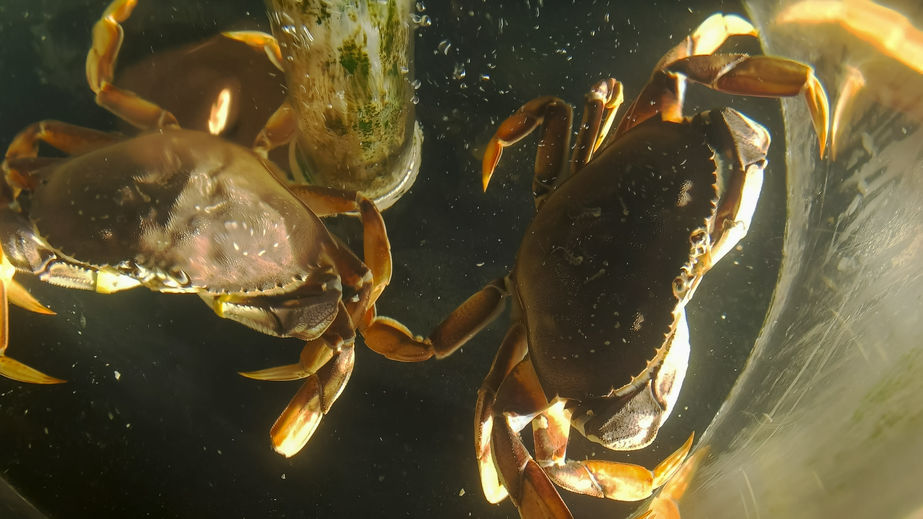If ever there was a seafood delicacy that doubles as a Thanksgiving tradition, it is the Dungeness Crab. Specifically in the San Francisco Bay area, they are routinely eaten on and around the Thanksgiving day celebration. It makes sense: their season starts about a week before Thanksgiving (officially 15 November).
This year, in what has become almost a hallmark of the season itself, the California Department of Fish and Wildlife has delayed the season. The rationale is simple: the migratory patterns of whales and sea turtles moving down the coastline for warmer waters in the Winter has been delayed, and state Wildlife officials are afraid that the crabbers’ nets may ensnare the migrating marine life. The Dungeness Crab Fishing Gear Working Group, essentially a sounding board between large-scale commercial crabbers and environmentalists, has supported the delay, as have statewide fishing unions such as the California Coast Crab Association.
Small-scale crabbers, however, weren’t so enthusiastic. While recreational crabbing has gone virtually untouched, commercial crabbing delays have been routine since 2015. This hasn’t gone unnoticed. In fact, it has forced many commercial crabbers to consider retiring from the fleet and finding work elsewhere. After all, if they only crab recreationally, they won’t face onerous regulations, although they may bring in less meat.
Additionally, the delays cause further problems for the crabbers. Forcing them to go out in December means they must brave the harsh waters off California’s northern coast, which are especially perilous in the winter. The industry is also facing economic concerns as well, as many crabbers rely on catching other types of fish (such as salmon or halibut) to support their lifestyle. Their margins of profit are razor-thin, and any seemingly-trivial fluctuation in the price point could cause the industry to face collapse, a fear that keeps many crabbers awake at night.
The locals are protesting the claim that the crabbers and fishermen are the threats to the whales. They blame the shipping industry for the harm to marine life and stated, in an article in the Daily Journal, that fishermen and crabbers rarely ever ensnare whales. Additionally, with the invention and distribution of biodegradable netting, the threat to marine life from these fishermen will hopefully dissipate soon. Much like hunters, fishermen have great respect for marine life, and they don’t want to harm the ocean habitat.
The California Department of Fish and Wildlife ought not to continue such a burdensome regulatory scheme. Doing so only hurts local businesses, including crabbers and restauranteurs, and ultimately, the crabs they seek to protect.
